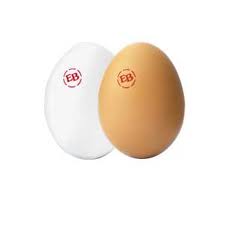
How Eating Eggs Affects Lipid Levels
Researchers at the University of Connecticut looked at the impact of an egg-rich diet on lipid levels. They assigned middle-aged men and women with metabolic syndrome to two groups. One group ate three whole eggs a day while the other ate a similar amount of cholesterol-free egg substitute. During the three month study, each group followed a low-carbohydrate diet.
The results? Good news for egg lovers! The group that ate the whole eggs showed no significant change in their total cholesterol or LDL-cholesterol. Even more interesting, they experienced favorable changes in their lipid profile after three months of eating eggs every day. Their HDL-cholesterol, the “good” kind that’s linked with a lower risk for heart disease went up. Plus, their triglycerides went down. These changes are all favorable for heart health.
Eggland’s Best Eggs Are a Powerhouse of Nutritional Benefits
When you’re looking for a high-quality source of protein, eggs have you covered. In fact, eggs are such a good source of bioavailable protein they’re the “gold standard” by which other protein foods are compared. When you bite into an Eggland’s Best egg, you’re getting 6 grams of quality protein that contains all of the essential amino acids and only 70 calories.
Eggs also rank high on the satiety scale. In a study published in the Journal of the American College of Nutrition, researchers gave participants a breakfast of either eggs or bagels, each with a similar number of calories. When both groups were offered lunch 3.5 hours later, the participants who had eaten eggs for breakfast consumed fewer calories at lunch. Plus, they got more muscle-building protein first thing in the morning than the bagel-eating group did.
Don’t Underestimate the Nutritional Value of Eggland’s Best Eggs
Eggland’s Best eggs aren’t just a source of protein – they have other nutritional benefits as well. Eggs are one of the few food sources with vitamin D. One Eggland’s best egg has about 80 international units of vitamin D, twice as much as an ordinary egg. Eggland’s Best eggs also contain 10 times the amount of vitamin E and double the amount of omega 3’s of an ordinary egg.
The yolk of an egg has some surprising health benefits as well. It’s a source of antioxidant compounds called carotenoids that are important for eye health. In fact, eggs have more lutein, a type of carotenoid, than spinach does. Whole eggs also have respectable quantities of other vitamins including B vitamins and vitamins A, D, E, and K – and they’re a source of 13 different minerals.
Eggs also contain choline, a compound similar in structure to a B-vitamin, that’s vital for brain health. Choline is a precursor to acetylcholine, a neurotransmitter that carries messages between nerve cells. It’s critical that pregnant women get enough choline in their diet since growing fetuses need adequate amounts of choline to develop a normal brain and nervous system. Egg yolks are a concentrated source of choline.
Egg Yolks versus Egg Whites
If you’re watching your calorie intake, should you eat egg whites instead? When you eat egg whites, you miss out on the vitamins in whole eggs. The vitamins are found in the yolk, not the whites. You also won’t get the carotenoids and choline if you only eat the white portion since these are found in the yolk of whole eggs.
Egg whites have half the number of calories of whole eggs, but whole eggs are filling and satisfying, meaning they may reduce your hunger later in the day. People who start the day with a breakfast of eggs have an easier time controlling their weight than those who skip breakfast or eat a breakfast high in carbs.
If you want to reduce the number of calories and still get the benefits of the vitamins and carotenoids in whole eggs, make an omelet with half whole eggs and half egg whites. Whatever you do, don’t miss out on the health benefits of the incredible, edible whole egg.
References:
Metabolism 2012; doi:10.1016/j.metabol.2012.08.014.
J Am Coll Nutr. 2005 Dec;24(6):510-5.
Nutraingredients.com. “Eggs for Eye Health”
Related Articles By Cathe:
A New Reason to “Eat Your Eggland’s Best Eggs”
How Eggland’s Best Eggs Jumpstart Your Brain and Improve Memory
Whole Eggs vs. Egg Whites: Is One More Effective for Muscle Protein Synthesis?
2 Factors That Determine the Quality of a Protein
Are Mushrooms a Good Source of Plant-Based Protein?
Hungry All the Time? How to Choose Foods That Will Keep You Full Longer

